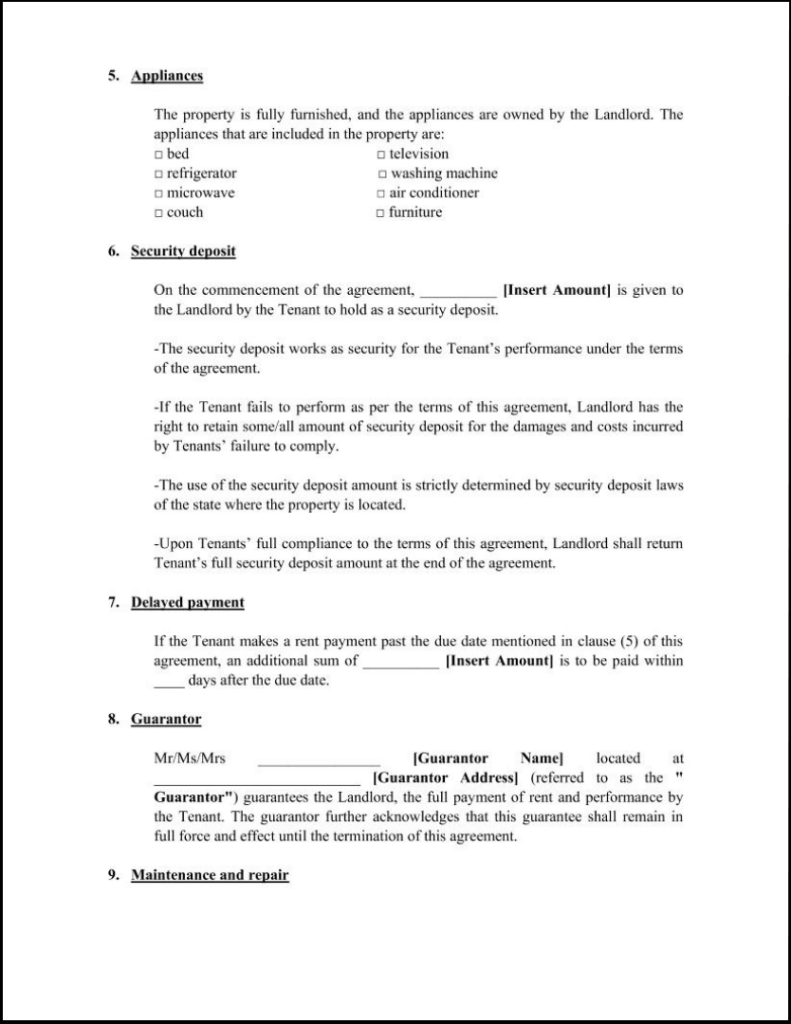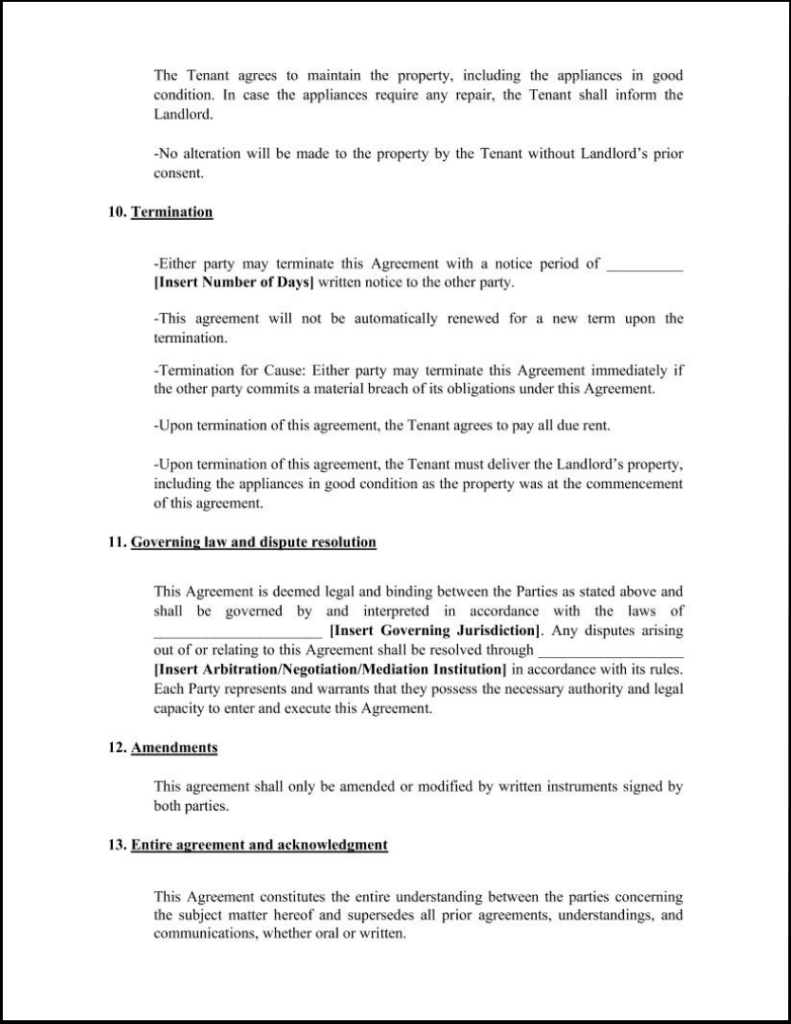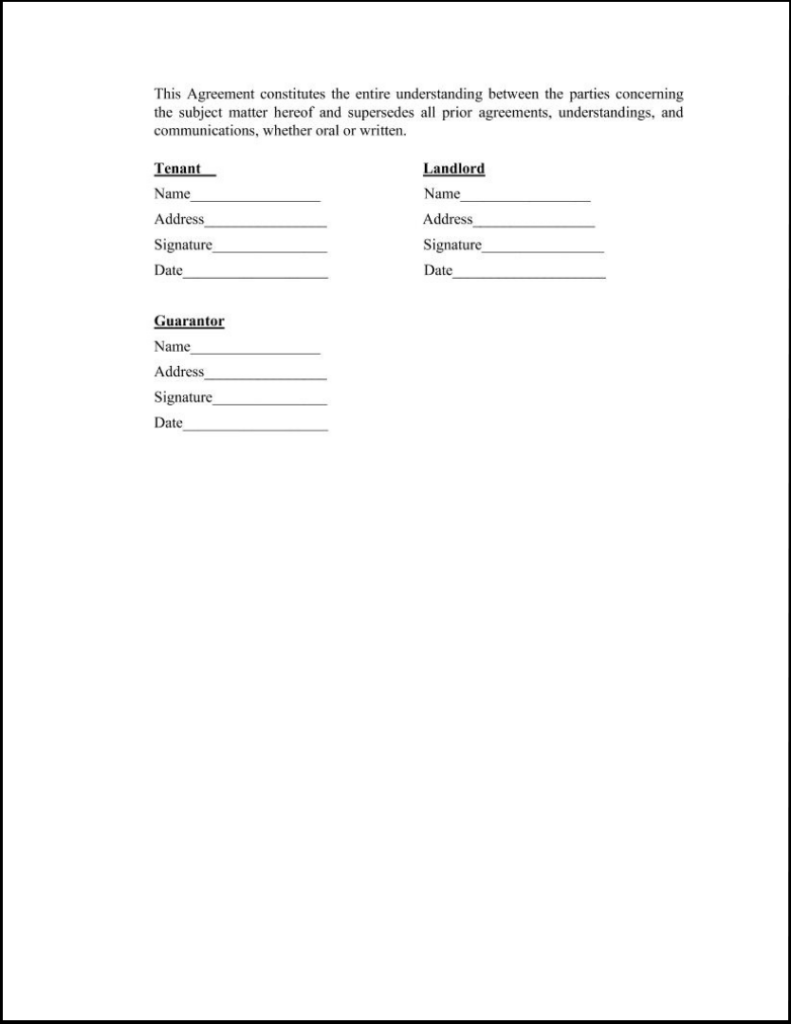
Leasing a property can be a complex process for both landlords and tenants. It requires a clear understanding of the rights, responsibilities, and obligations of each party involved. To ensure a smooth and transparent leasing experience, a well-drafted lease agreement is essential.
Kickstart your leasing process today with our meticulously designed lease agreement template. Simplify your operations and ensure a seamless leasing experience by downloading it now.



A lease agreement is a legally binding document that outlines the terms and conditions of a rental arrangement between a landlord and a tenant. It establishes a contractual relationship, specifying the rights and obligations of each party during the lease term. A well-drafted lease agreement serves as a vital tool for both landlords and tenants to protect their interests and maintain a harmonious landlord-tenant relationship.
Lease agreements typically cover important aspects such as:
Access our free lease agreement sample to safeguard your interests. Download now and take proactive steps toward a secure lease agreement at no cost.
A lease agreement plays a crucial role in rental arrangements, providing a comprehensive and legally binding contract that outlines the rights and responsibilities of both landlords and tenants. This essential document helps establish clear expectations, protect the interests of all parties involved, and mitigate potential conflicts. Let’s explore why a lease agreement is essential for successful rental arrangements.
Verbal lease agreements, although common in some situations, can be risky for both landlords and tenants. Without a written lease agreement, important terms and conditions may be subject to misinterpretation or forgotten altogether. A written lease agreement ensures that both parties are on the same page and minimizes misunderstandings that can lead to disputes or legal complications.
In some jurisdictions, lease agreements offer protection against unreasonable rent increases through rent control regulations. These regulations limit the amount and frequency of rent adjustments, providing stability and affordability for tenants, especially in areas with high rental demand and the potential for significant rent hikes. A lease agreement can outline the agreed-upon rent and any applicable rent control provisions, ensuring transparency and fairness in rental pricing.
Disputes can arise in any landlord-tenant relationship. A lease agreement serves as a valuable tool for conflict resolution by clearly defining the process for handling disagreements. It can outline steps such as mediation or arbitration, helping both parties navigate disputes and find mutually satisfactory resolutions, ultimately fostering a more harmonious rental experience.
Proper maintenance and repairs are essential for maintaining a habitable and safe rental property. A lease agreement specifies the responsibilities of both the landlord and the tenant regarding repairs and maintenance. It clarifies which party is responsible for specific tasks and sets expectations for prompt communication and resolution of maintenance issues, ensuring a well-maintained property and a comfortable living environment.
A well-drafted lease agreement provides legal protection for both landlords and tenants. It outlines the rights and obligations of each party, ensuring compliance with local laws and regulations. Additionally, it helps protect the landlord’s property by clearly stating rules related to property use, pet policies, subleasing, and other important considerations. For tenants, a lease agreement guarantees their right to privacy, quiet enjoyment, and protection against unfair eviction.
Sometimes, circumstances may arise that require either the landlord or the tenant to end a lease agreement prematurely. While lease agreements are typically designed to last for a specified term, certain situations may warrant early termination. Here are some circumstances that may lead to the premature ending of a lease agreement: